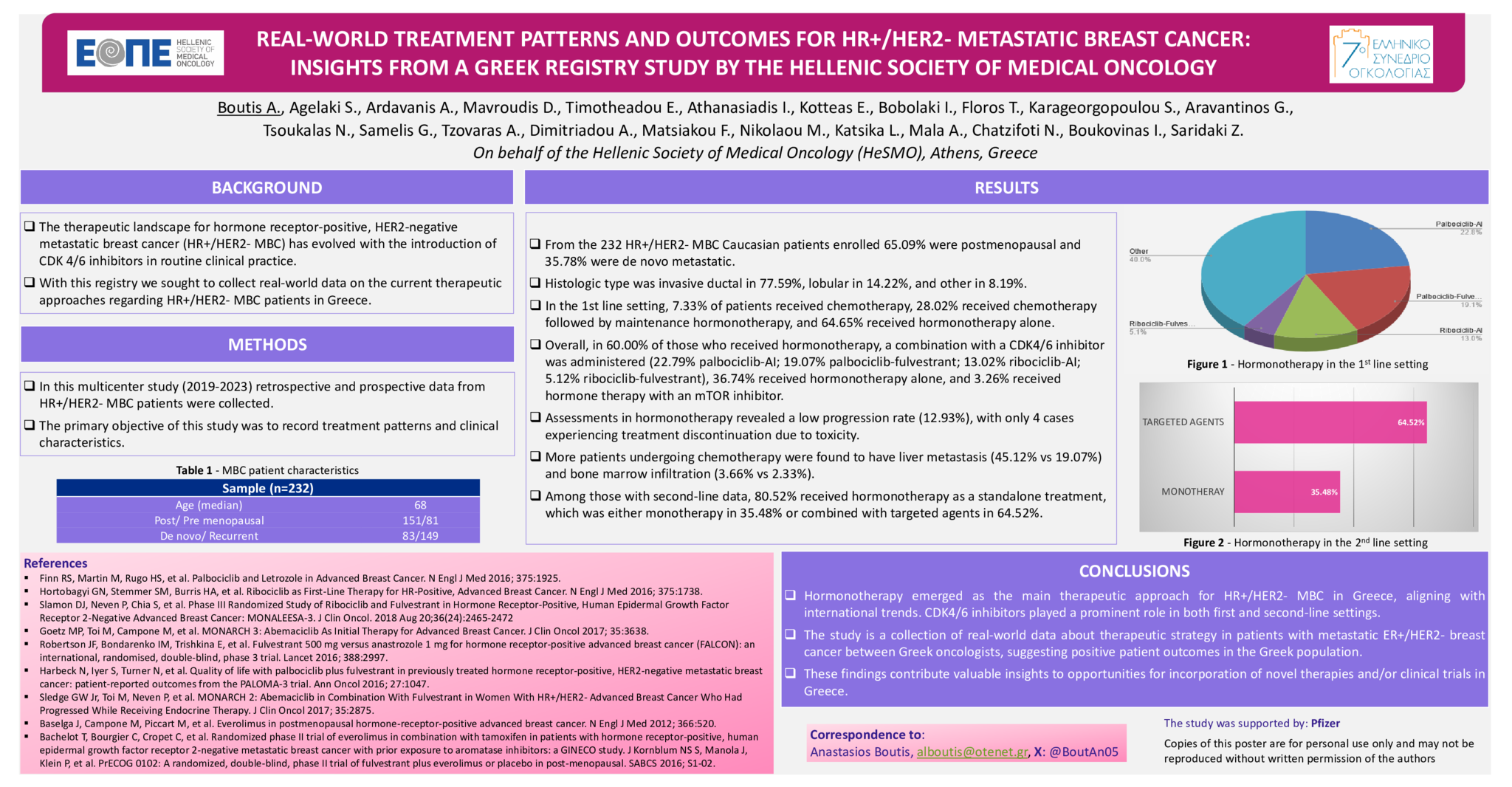Background: The therapeutic landscape for hormone receptor-positive, HER2-negative metastatic breast cancer (HR+/HER2- MBC) has evolved with the introduction of CDK 4/6 inhibitors in routine clinical practice. With this registry we sought to collect real-world data on the current therapeutic approaches regarding HR+/HER2- MBC patients in Greece.
Purpose: The primary objective of this study was to record treatment patterns and clinical characteristics.
Methods: In this multicenter study (from 2019 to 2023) retrospective and prospective data from HR+/HER2- MBC patients were collected.
Results: From the 232 HR+/HER2- MBC Caucasian patients enrolled 65.09% were postmenopausal and 35.78% were de novo metastatic. Histologic type was invasive ductal in 77.59%, lobular in 14.22%, and other in 8.19%. In the 1st line setting, 7.33% of patients received chemotherapy, 28.02% received chemotherapy followed by maintenance hormonotherapy, and 64.65% received hormonotherapy alone. Overall, in 60.00% of those who received hormonotherapy, a combination with a CDK4/6 inhibitor was administered (22.79% palbociclib-AI; 19.07% palbociclib-fulvestrant; 13.02% ribociclib-AI; 5.12% ribociclib-fulvestrant), 36.74% received hormonotherapy alone, and 3.26% received hormone therapy with an mTOR inhibitor. More patients undergoing chemotherapy were found to have liver metastasis (45.12% vs 19.07%) and bone marrow infiltration (3.66% vs 2.33%). Among those with second-line data, 80.52% received hormonotherapy as a standalone treatment, which was either monotherapy in 35.48% or combined with targeted agents in 64.52%.
Conclusions: Hormonotherapy emerged as the main therapeutic approach for HR+/HER2- MBC in Greece, aligning with international trends. CDK4/6 inhibitors played a prominent role in both first and second-line settings. The study is a collection of real-world data about therapeutic strategy in patients with metastatic ER+/HER2- breast cancer between Greek oncologists, suggesting positive patient outcomes in the Greek population. These findings contribute valuable insights to opportunities for incorporation of novel therapies and/or clinical trials in Greece.
- 6 προβολές




